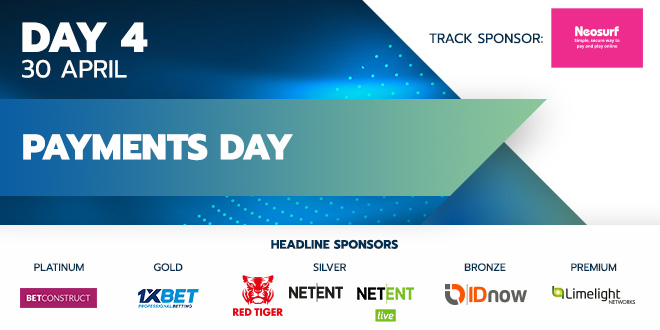The first-panel session of the Payments Day track, held on day-four of the inaugural SBC Digital Summit, debated how COVID-19 disruptions will impact all dynamics related to AML, fraud and customer verification measures.
Payment Expert Editor Joe Streeter led discussions on key industry disciplines that were in the midst of an overhaul, prior to the virus spreading and creating a pandemic.
The first focus was on the ‘human element’ of the pandemic, in which panicked consumers’ daily habits are thrown out of sync. Streeter asked panelists if standard betting procedures and protections stand-up against the coronavirus chaos?
Steven Armstrong, Group Director of AML at William Hill, said “In general, betting regulations are defined on a risk-based approach. From an operators’ view, this should help them adapt thresholds and their risk models, however, developing flexible procedures are trickier under this environment.”
Rahul Das, Head of Payments for VirginBet, backed Armstrong’s statement on flexibility, detailing that standard AML procedures have been tested, as operators may be unaware of a customer’s monetary circumstance.
He added: “Regulatory guidelines haven’t changed, but consumer circumstances have, making profiling more complicated. You might have a customer who passed affordability checks 2 months ago, but their financial situation might have changed drastically.”
Whilst regulators continue to require checks and balance, Das continued that compliance demands do not account for radical changes in consumer behaviour under a crisis context.
“We have built behavioural models observing customers, but predictive values are diminished if behaviour changes drastically in a short time,” he explained. “You are therefore left scrambling trying to protect customers… this is where I believe the puzzle is.”
Working under unique circumstances, Armstrong said that William Hill affordability checks and customer profiling has had to adapt to the demands of the here and now rather than relying on retrospective reviews.
“It gets me into trouble with KYC suppliers,” said Armstrong. “But I want to know what a player’s status is right now, not what check they were receiving six months ago. Their situation will have changed, for us it’s all about the present timestamp.”
Working with diverse betting operators across Europe, Roger Tyrzyk – Country Manager for the UK and Ireland at IDnow – shared that its has been a period for technology incumbents to step up, filling holes in KYC procedures.
Noting that customer verification and profiling have become harder disciplines in the pandemic, he said that software providers have to move provisions ‘beyond simple document checks’.
“Operators have asked us to do face-to-face verifications, via video links,” said Tyrzyk. “They have also asked us to probe deeper questions making sure the customer is safe and that security is maintained.”
Tyrzyk stated that IDnow customers are fully aware of the consequences of failing on AML and fraud demands during this unforeseen period as ‘tabloids are waiting to jump on negative headlines’.
Das and Armstrong also recognised the high-stakes placed on AML and fraud conduct, which will be ramped up once the sports calendar comes back into play.
Countering future impacts, Das advised betting operators to develop ‘frontline teams’ consisting of compliance, responsible gambling, customer service and AML stakeholders, in order to avoid being swamped by the sports schedule.
When sports do come back, he said that all compliance teams should be ready to ask sensitive questions of their customers – something that cannot just be pawned off to the customer services.
____________________________
The SBC Digital Summit runs from 27 April to 1 May 2020, featuring seven conference tracks, a virtual exhibition and virtual networking lounges. It has attracted an estimated 10,000 delegates from around the world. There is still time to register for the event, with company discounts available HERE.










